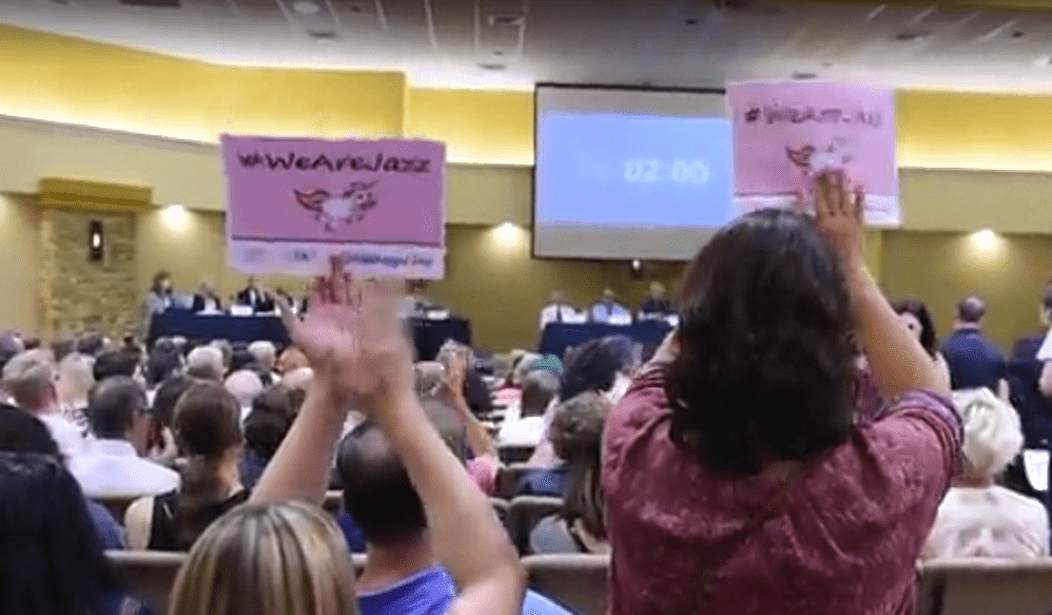The school board of Northern California’s Rocklin Academy Gateway voted unanimously to keep a policy that allows books that promote transgenderism to be read to children as young as five, but added a policy that they would warn parents before they did.
Despite notifying the parents, however, the school board denied a proposal to give parents the right to pull their children out of classes that would teach the children pro-transgender education, essentially making the notification rule useless.
The controversial vote came about after a kindergarten teacher read “I Am Jazz” — a book about a transgender child’s transition to the opposite sex — and then allegedly held something of a “transition ceremony” where a young boy went into a bathroom, and then reemerged dressed in girl’s clothing. The teacher identified the boy as a girl, with a girl’s name.
The event shocked and disturbed some of the children, many who went home crying that they were going to turn into the opposite sex.
According to the teacher, gender transition did not fall under the auspices of sex education, and therefore the parents didn’t have to be notified that the show would be taking place.
To break it down, Rocklin Academy has allowed the teaching of controversial material outside of the curriculum, so long as they tell the parents they’re going to do it first. However, the parents can do nothing about it, as they won’t be allowed to remove their child from the classroom as it’s happening.
This essentially gives a teacher free rein to urge the kids to support whatever that teacher believes, and put on lessons and demonstrations some would find questionable, much like the “transition ceremony” that allegedly took place.
If the ceremony did take place, this raises another troubling question. The ruling from the school board primarily tackles the type of books that would be read to students, but did not seem to tackle the demonstration by the reports given about the ruling. Does this mean the teacher can put on further demonstrations regarding transition?
For instance, in an effort to further teach the children about transgenderism, could the teacher urge students to try out transgenderism for themselves by asking them to change into clothing from the opposite sex? Would parents still not have the right to remove their children from that kind of “education?”
The possibilities for forcing transgenderism on students seems wide open here. If that’s the case, then parents should take this inability to interfere in their own children’s education to the highest court they can.















Join the conversation as a VIP Member